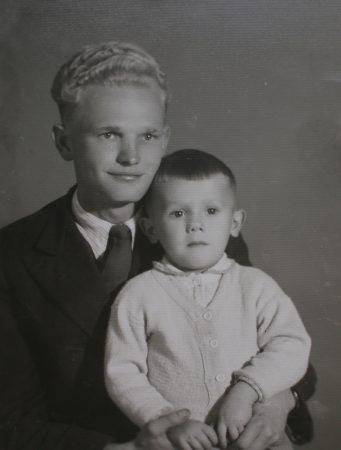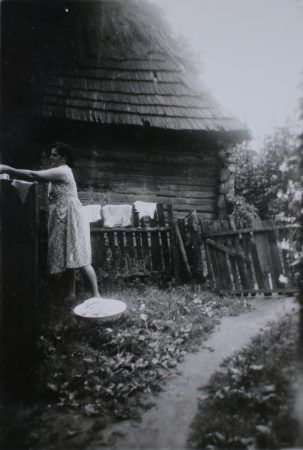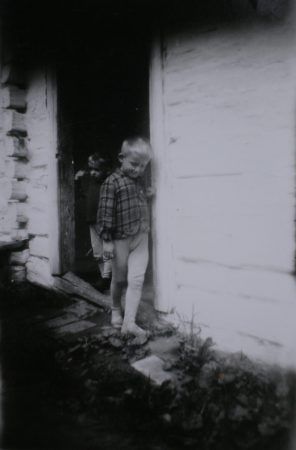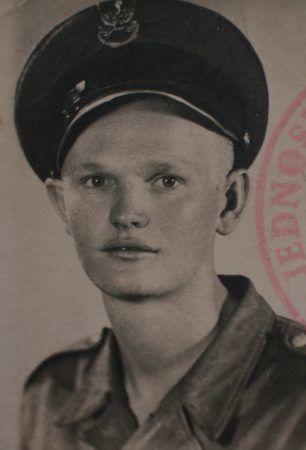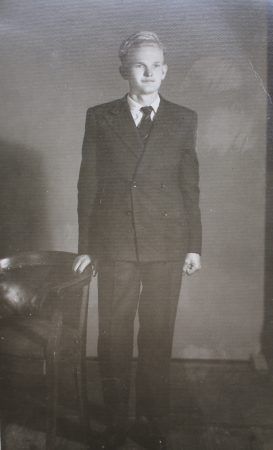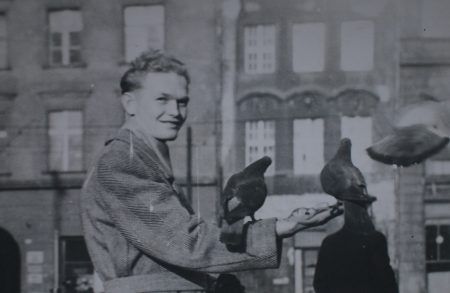Bolesław and Stanisława Fusowie from Żołynia
 Place
PlaceŻołynia
 People
PeopleFus Bolesław
Fus Stanisława
Żołynia is a village in the Podkarpacki region. The Jews appeared here in the XVII century. They settled and started to prosper. The Jewish community was growing rapidly. In 1821 in Żołynia among 72 Christian families have lived 44 Jewish families. The Jews were running taverns, shops and betting crafts. Three quarters of all these places belonged to Jews. In 1880 their community was made up almost of the 60% of the rural population. They lived well before the first world war. Russian troops and Cossack did not save no one. When in Second World War started, in Żołynia lived about 660 Jews. In 1942 most of them were transferred to the death camp in Bełżc.
In Żołyń lived Bolesław and Stanisława Fusowie. Their son Władysław was already a twelve years old boy: interested in the world, still too young to understand what was happening around. He didn’t understand that any help to Jews – even the slightest gesture can be tragic. But this knew his parents. Despite the looming consequences they didn’t hesitate when their former neighbor came to ask for bread.
A Jew named Gec escaped during the eviction, and thus escaped death. He lived hiding. At night, he came to Fus family: „Always came by night and knocked, and cried: „Bolek! Give bread!” And dad always said, „Stasia! […] there you have it, bread? […]”. […]«”. And so he came by a few times, and Fus shared what they had – recalls Władysław Fus, who adds that he was not afraid, because he didn’t understand how dangerous sharing bread was.
The family lived in difficult conditions. During winter their windows were frozen, and so the water in the well. Getting fuel was also a problem. Władysław had to go to a nearby village to get something to eat – at least a handful of potatoes. However, this did not prevent the family to help hiding Jew.
Władysław was curious and often together with his colleagues was hanging around in Żołyń. He was repeatedly a witness of the persecution to the Jews. He saw Józef Kokot, accompanied by another officer when they cruelly mocked with the senior Jew, and, therefore, deprived him of life. All of these events Władysław – despite the years – kept in his memory to tell them to the world today.
Bibliography:
- FLV, nagranie audio, sygn. 800_0014 i 800_0015, relacja Władysława Fusa z 28.02.2017 r.
- FLV, nagranie wideo, relacja Władysława Fusa, Wrocław, 30.03.2017 r.
- [Strona internetowa:] http://pomagali.pl/wladyslaw-fus-rodzice-dzielili-sie-chlebem, dostęp: 12.04.2017.
- [Strona internetowa:] http://www.sztetl.org.pl/pl/article/zolynia/5,historia/?action=view, dostęp: 12.04.2017.
DOCUMENTS:
No extra materials
